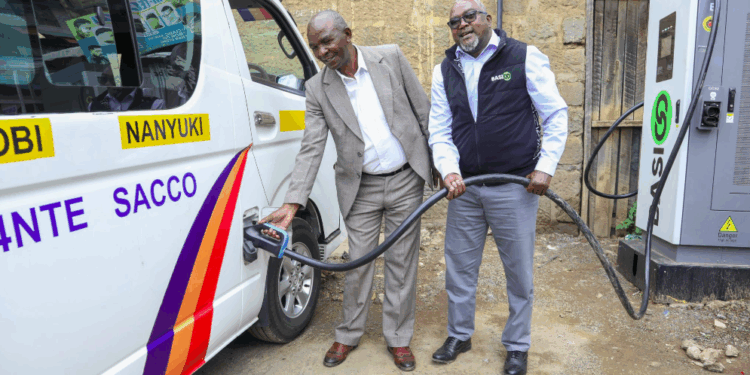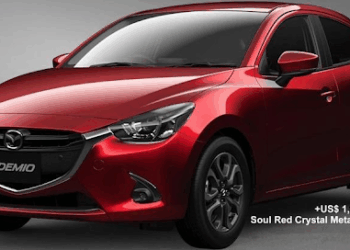Kenya’s journey toward sustainable transport just took a major leap forward. BasiGo, the Nairobi-based electric mobility startup, has launched the country’s first electric matatu pilot program on intercity routes—a significant move in Kenya’s efforts to green its notoriously diesel-heavy public transport system.
This milestone brings electric vehicles (EVs) beyond Nairobi’s city limits, tackling real-world, long-distance commuter routes and offering a glimpse into what the future of regional travel might look like for thousands of daily passengers.
Breaking Ground: Electric Matatus Hit the Road Between Key Towns
The pilot program includes a partnership with two established SACCOs—4NTE and Manchester Travellers Coach. These two cooperatives are deploying electric vans along key regional routes:
- Nyahururu–Nyeri
- Nyahururu–Nakuru
- Thika–Nairobi
These corridors are vital for daily travel and trade, making them ideal testbeds for the capabilities of electric matatus outside city environments.
Each vehicle features a 300-kilometre range per full charge and takes just 90 minutes to recharge. Charging stations have already been installed in Thika and Nyahururu, ensuring reliable support infrastructure for the trial.
The vehicles are available under BasiGo’s “Pay-As-You-Drive” model—a lease-to-own scheme designed to help matatu owners adopt the vehicles without the burden of high upfront costs. For context, EVs can be expensive to purchase outright, but significantly cheaper to run over time.
Bringing Electric Mobility to the Matatu Sector
“By expanding electric mobility beyond Nairobi and electrifying an iconic symbol of Kenyan culture—the matatu—we are not just innovating, we are making EVs truly accessible,” said Moses Nderitu, Managing Director of BasiGo.
The initiative also aligns with Kenya’s climate goals, where transportation accounts for a substantial share of greenhouse gas emissions. The matatu sector, informal and mostly diesel-powered, is ripe for disruption. According to a report on formalising the industry, regulation and modernization remain major challenges.
But some SACCOs are ready to embrace the shift.
“We see this as a step into the future,” noted Wilfred Kimotho, Chairman of 4NTE Sacco. “If we don’t adapt, we’ll be left behind while the rest of the world embraces cleaner, more efficient transportation.”
Challenges Ahead: Infrastructure and Attitudes
Despite this momentum, electric mobility in Kenya isn’t without obstacles:
- Charging Infrastructure: Still limited outside Nairobi and Mombasa.
- Operator Skepticism: Many matatu owners and drivers remain unsure of EV reliability and cost-efficiency.
- Road Conditions: Rural roads can be tough on standard vehicles, raising questions about the long-term durability of EVs.
However, these issues are not unique to Kenya. Similar concerns were voiced in early EV deployments globally—and were eventually overcome with the right mix of investment, education, and government support.
BasiGo’s approach includes not only expanding physical infrastructure but also working closely with SACCOs and drivers to build confidence in electric transit.
What’s Next for BasiGo? Scaling Locally and Affordably
If the pilot proves successful, BasiGo plans to rapidly scale up its electric van fleet. The company, which launched in 2021, has set an ambitious target: over 1,000 electric matatus across Kenya within the next few years.
In 2024, the company raised $41.5 million to expand its local assembly line in Nairobi—underscoring its commitment to creating jobs and reducing import costs. Like its electric buses already operating in Nairobi, these new matatus will eventually be assembled in Kenya, a move that boosts local industry and lowers ownership costs.
Want to stay updated with more stories on Kenya’s automotive shift? Check out the latest news and insights on Automag Kenya, your go-to site for car reviews, road trip tips, and EV developments in Kenya.
Thinking About a Greener Commute?
While this initiative is currently in pilot stage, it sets the foundation for accessible, affordable, and eco-friendly transportation for all. If you’re looking to explore electric or second-hand vans for business or SACCO use, platforms like Auto24.co.ke offer a variety of listings suited for both urban and rural applications. You can already spot similar passenger vans and minibuses on the platform that could be upgraded to EV alternatives as infrastructure grows.
Also, for more in-depth updates on the evolving car landscape in Kenya—from electric models to maintenance tips—be sure to browse AutosKenya.com, a leading resource for Kenyan drivers and enthusiasts alike.
Final Thoughts: A Small Pilot With Big Potential
Kenya’s transport sector is at a tipping point. As cities grow and emissions rise, the demand for clean, efficient, and affordable transport solutions becomes urgent. BasiGo’s intercity pilot is more than just a tech trial—it’s a cultural shift in how Kenyans move.
If successful, it will redefine public transport for generations and pave the way for a fully electric future, starting with the matatu—a true Kenyan icon.




